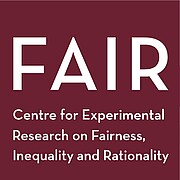Survivor Benefits, Self-Insurance, and Gender Inequality: Evidence from Sweden [12.11.25]
Lecture by Nadja Dwenger, Head of Chair for Public Economics, at the FAIR Centre/NHH Norwegian School of Economics
Nadja Dwenger, Head of Chair for Public Economics, will present her research paper “Survivor Benefits, Self-Insurance, and Gender Inequality: Evidence from Sweden” (joint work with Johannes Kochems, Martin Nybom, Sebastian Siegloch) at the FAIR Seminar at the NHH Norwegian School of Economics on November 13 in Bergen.
The study analyzes the causal effects of survivor benefits on women's labor and capital market decisions. They exploit a cohort-based reform in Sweden in 1990 that sharply reduced survivor benefits. To estimate how women compensate for a loss of public insurance, they apply regression discontinuity and differences-in-differences designs to estimate the reform-effects on labor supply, earnings, and wealth accumulation. They find no evidence of labor supply adjustments in anticipation of lower survivor benefits while partners are still alive. However, affected women postpone retirement and accumulate significantly more net wealth. Yet, these adjustments are insufficient to fully offset the benefit loss. After an early and unexpected partner death, women substantially increase employment and earnings which is consistent with imperfect foresight.
About FAIR
Centre for Experimental Research on Fairness, Inequality and Rationality (FAIR)
FAIR constitutes a unique platform for long-term collaboration between the research groups The Choice Lab and the Centre for Empirical Labor Economics and a truly multidisciplinary and outstanding set of national and international collaborators.
The centre is managed by a scientific coordination group, director Bertil Tungodden, deputy-directors Alexander Wright Cappelen and Kjell Gunnar Salvanes, four principal investigators Ingvild Almås, Sandra E. Black, Katrine Vellesen Løken, and Erik Øiolf Sørensen and the leader of FAIR Insight Team Kjetil Bjorvatn.


